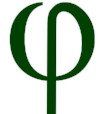REGULATION
Global Regulation
Regulation of the natural medicines market exists at an international, national and regional level. The World Health Organization (WHO) - the specialized health agency of the United Nations – and pan-national bodies such as the Pan-American Health Organization (PAHO) promote and deliver WHO health strategy in their respective countries. Many countries also produce pharmacopeia which specify the standards required for the production of licensed medicines in their territories.
Regulation of the natural medicines market exists at an international, national and regional level. The World Health Organization (WHO) - the specialized health agency of the United Nations – and pan-national bodies such as the Pan-American Health Organization (PAHO) promote and deliver WHO health strategy in their respective countries. Many countries also produce pharmacopeia which specify the standards required for the production of licensed medicines in their territories.
The Good Manufacturing Practices (GMP)
adopted in 1968, the GMP program defines quality measures for all stages of production and quality control of ‘medicinal products’.
The Convention on Biological Diversity (CBD)
of 1992 promotes “the conservation of biological diversity, the sustainable use of its components, and the fair and equitable sharing of benefits arising from the use of genetic resources”.
The Nagoya Protocol
(2014)
has enhanced aspects of the CBD regarding access and benefit-sharing.
The Convention on International Trade in Endangered Species of Wild Fauna and Flora (CITES)
of 1975 is an international agreement between governments to ensure that international trade in specimens of wild animals and plants does not threaten their survival.
Europe
The European Directive on Traditional Herbal Medicinal Products (THMPD) was implemented throughout the European Union (EU) in 2011 in order to provide a unified regulatory approval process for traditional herbal medicines. It has led to two kinds of marketing registrations: traditional use registrations (TURs) and well-established use marketing authorizations (WEU-MAs).
United Kingdom
The European Directive on Traditional Herbal Medicinal Products (THMPD) was implemented throughout the European Union (EU) in 2011 in order to provide a unified regulatory approval process for traditional herbal medicines. It has led to two kinds of marketing registrations: traditional use registrations (TURs) and well-established use marketing authorizations (WEU-MAs).
Under TUR, manufacturers must demonstrate that an herbal medicine has been used in the EU for at least 30 years, or 15 years in the European Economic Area (EEA) and 30 years outside it. WEU-MAs must demonstrate the same evidence of safety and effectiveness as any other pharmaceutical drug.
United Kingdom
Before 1997 the herbal medicines market in the UK was largely un-regulated. After a number of deaths involving herbal medicines, the Medicines and Healthcare products Regulatory Agency (MHRA) began to develop a partial regulatory system. This regulatory framework was bolstered by the introduction of the EU THMPD Directive which was transposed into UK legislation in 2005.
To date, the MHRA has registered over 350 products under its traditional herbal registration (THR) scheme. The MHRA, in partnership with law enforcement agencies, has also carried out high profile seizures of fake or sub-standard medicines.
United States
In the US, a natural medicine can be classed as a biological product, cosmetic, drug, device, or dietary supplement. Dietary supplements cannot be marketed for the purpose of treating, diagnosing, preventing, or curing diseases, but they can be sold without FDA approval – however, the manufacturer is ultimately responsible for their safety and efficacy.Drugs, as defined by the FDA are “articles intended for use in the diagnosis, cure, mitigation, treatment, or prevention of disease” and “articles (other than food) intended to affect the structure or any function of the body of man or other animals” and include prescription drugs (both brand-name and generic) and non-prescription (over-the-counter) drugs. Registered Naturopathic doctors may prescribe certain non-approved drugs although, in the case of certain conditions (e.g. cancers), it is illegal to prescribe non-approved drugs.
The Federal Food, Drug, and Cosmetic Act and Public Health Service Act also control dietary supplements and two licenses have been granted for a further FDA-defined category of botanical drugs, i.e. Sinecatechins - a water extract of green tea leaves from Camellia sinensis L., marketed as Veregen® for the treatment of genital warts, and, MytesiTM – containing crofelemer from the latex of the Croton lechleri Müll.Arg. tree – used as an anti-diarrheal for HIV/AIDS patients undergoing anti-retroviral therapy (ART).
Up 600 botanical drugs have been registered with the FDA as ‘investigational’ new drugs; of these only around 2% have reached phase III clinical trials.


